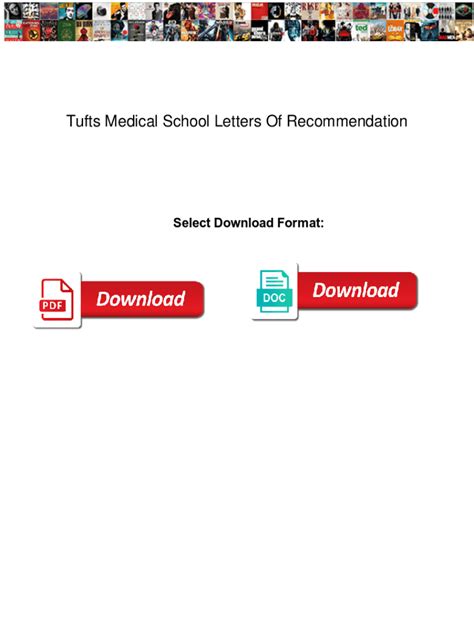Introduction

Tufts University is a highly selective research institution located in Medford, Massachusetts. As part of its rigorous admissions process, Tufts requires students to submit a variety of application materials, including letters of recommendation. This article will provide a comprehensive overview of Tufts’ letters of recommendation requirements, addressing common questions and offering guidance to prospective applicants.
Letters of Recommendation Requirements
Number of Letters Required:
Tufts requires at least two letters of recommendation, with a maximum of three. These letters should come from individuals who are well-acquainted with the applicant’s academic abilities, personal qualities, and potential for success in college.
Types of Recommenders:
The ideal letter of recommendation writers are individuals who have supervised the applicant’s academic work in a rigorous setting, such as teachers, professors, or research mentors. Other suitable recommenders include coaches, employers, or community leaders who can attest to the applicant’s character and work ethic.
Content of Letters:
The primary purpose of letters of recommendation is to provide admissions officers with a detailed assessment of the applicant’s abilities, motivations, and aspirations. The letters should be specific and provide concrete examples that demonstrate the applicant’s academic prowess, intellectual curiosity, leadership qualities, and personal attributes.
How to Submit Letters:
Tufts accepts letters of recommendation electronically through the Common Application or Coalition Application. Letters must be submitted directly from the recommenders and cannot beuploaded by the applicant.
Common Mistakes to Avoid
Generic or Vague Letters:
Avoid letters that are overly general or lack specific details about the applicant’s abilities. Admissions officers want to understand the applicant’s unique strengths and qualities, so letters should be tailored to the individual.
Biased or Uninformed Letters:
Letters should come from individuals who have a genuine understanding of the applicant’s abilities and potential. Biased or uninformed letters will not provide admissions officers with valuable insights into the applicant’s qualifications.
Incomplete or Incomplete Letters:
Ensure that letters of recommendation are complete, addressing all the required aspects of the applicant’s character and abilities. Incomplete letters may raise questions about the applicant’s attention to detail and organizational skills.
Pros and Cons of Submitting Letters of Recommendation
Pros:
- Provides admissions officers with a more comprehensive evaluation of the applicant’s abilities and potential.
- Allows recommenders to advocate for the applicant’s strengths and unique qualities.
- Can help to differentiate the applicant from other candidates with similar academic credentials.
Cons:
- Requires additional time and effort from recommenders.
- Can be challenging to obtain timely letters from multiple recommenders.
- May not significantly impact the admissions decision for all applicants.
Conclusion
Letters of recommendation play a vital role in Tufts’ admissions process. By carefully selecting recommenders and ensuring that letters are specific, detailed, and compelling, applicants can enhance their chances of admission to this prestigious institution. However, it’s important to weigh the pros and cons and consider the applicant’s individual circumstances before submitting multiple letters.
